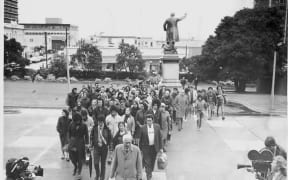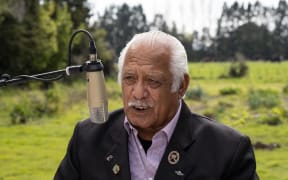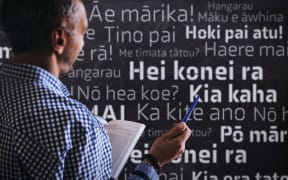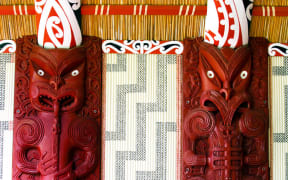
(file image) Photo: 123RF
A $70,000 app to help Hamilton City Council staff with te reo has one councillor calling for closer scrutiny of "pet projects" as ratepayers face an unprecedented rates rise.
He Pou Koorero - an app "designed to help people on their te reo journey" - will be launched this month and was funded by the city council.
Councillor Geoff Taylor said Hamilton ratepayers were facing a 19.9 percent rate rise, increasing to 80 percent over five years and spending on non-core services should be suspended for three years.
He called the app a luxury at a time when ratepayers were in a cost of living crisis and facing the biggest rate increase in two decades.
"Why aren't you putting the money into offsetting existing costs, instead of creating apps so staff can learn te reo? I just think it's really cavalier."
The money for the app could have been used instead to enable housing development, he said.
"To me, that's where the money should have gone because then it would have offset money ratepayers are already having to spend on core infrastructure.
"Should the money be going to an app? Shouldn't it be going to roads or water or pipes? What do residents get out of this?
"I keep hearing our leadership say there's no pet projects and there's no wastage going on, but to me this just shows that there is [wastage].
"And what upsets me is that if ever there was a time to spend money on core things, then this is it."
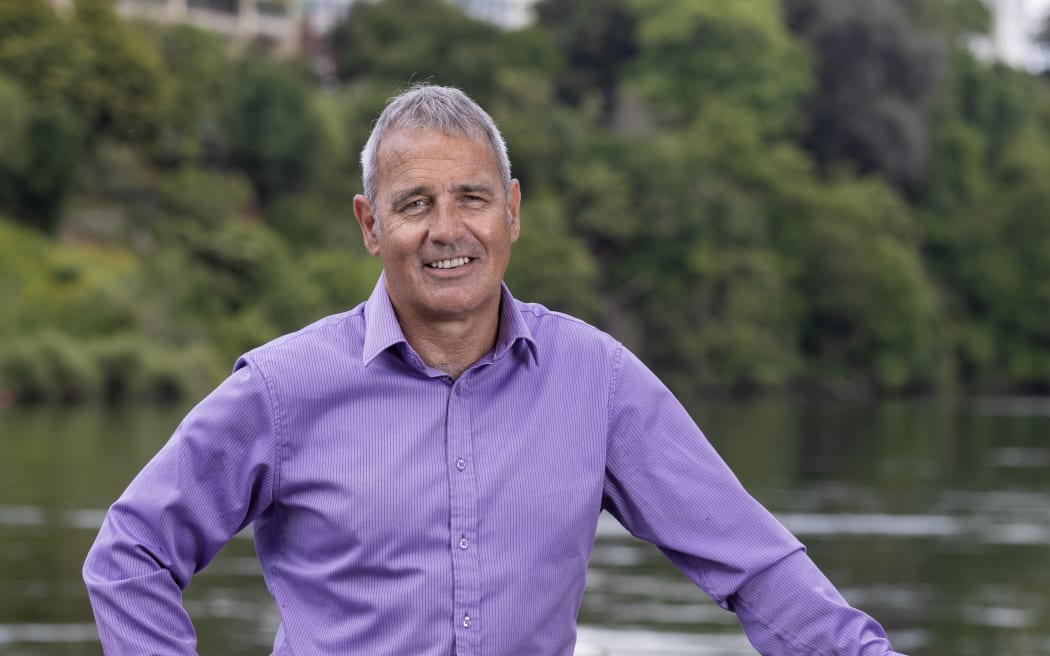
Hamilton City councillor Geoff Taylor says an internal app for staff is a waste of $70,000. Photo: Supplied
However, the council said staff needed a cultural appreciation and Māori knowledge of the city's history to successfully work in it.
Hamilton City Council general manager of partnerships, communication and Maaori Janet Carson said Māori businesses were some of the biggest investors in Hamilton/Kirikiriroa and collectively owned Māori assets were integral to the economic success of the city.
"To support the economic and cultural opportunity that Maaori bring to Kirikiriroa, Hamilton City Council staff must have a base-level cultural appreciation of the city's history and mātauranga Maaori (Maaori knowledge).
"He Pou Koorero is a cost-effective resource that provides a super simple, flexible and interactive resource for staff to learn at their own pace and convenience at their fingertips as they move about the city."
The app would help keep staff safe in cultural situations by giving them a grasp of the basics, Carson said.
"Pronouncing Maaori words correctly, understanding the basis for - and cherishing - our specially composed council karakia and waiata, and learning about the city's rich cultural heritage - for example, the profound impact of the Kiingitanga (the Maaori King movement) - builds that appreciation, and gives staff increased confidence when engaging with Maaori."
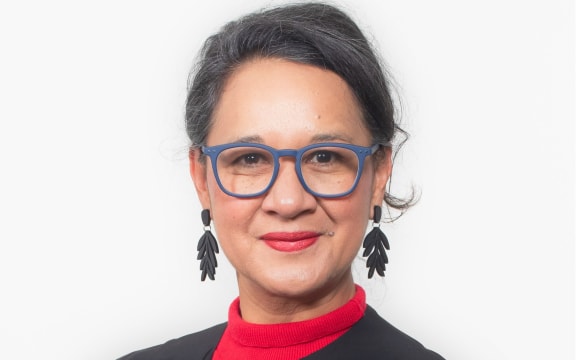
Hamilton City Council general manager of partnerships, communication and Maaori, Janet Carson, says the app will help staff build relationships with Māori. Photo: Supplied
It was not a question of water or Māori, because they were interdependent, she said.
"Staff are interacting and partnering with iwi and Maaori every day on water, significant infrastructure projects, and the environment, and have several co-governance agreements with iwi.
"Maaori respect our structures and values and we need to be able to reciprocate."
Waikato Regional Council established a similar app, Kawe Kōrero, in 2017 for its staff, other councils and the public and it remained free to download.
However, the free Hamilton council app was tailored for its own staff with a focus on its Māori strategy, waiata, karakia and Kiingitanga, local treaty settlements, local mana whenua and maataawaka, Carson said.
"Also, [it has] the dialectical usage of double vowels as opposed to the use of macrons, in line with [local iwi] Tainui grammar."
How was the new te reo app funded?
The app, to be launched at the end of May, was being developed by Kiwa, which had a five-year contract for maintenance and updates.
The cost of the app worked out to about $10 per staff member per year.
The $70,000 cost was part of $525,000 in Better Off Funding focused on embedding Te Tiriti o Waitangi into the council. The figure included:
- $175,000 for the development of a Tiriti policy
- $175,000 to develop a mātauranga Māori framework and implementation
- $175,000 to develop a te reo policy, which included the app
When put to the vote in February last year, the initiative was carried eight-to-five, with councillors Andrew Bydder, Mark Donovan, Kesh Naidoo-Rauf, Ewan Wilson and Taylor voting against.
The council would begin hearing some of the public's 2800 submissions on its 10-year plan from next week.
The 2024-34 Long-Term Plan proposed a 19.9 percent rate increase in the first year followed by 15 percent every year for four years to cope with inflation and other costs.
The council currently had a deficit of $76m.
Taylor believed it was not just the app that was wasteful council spending.
He suggested freezing transport spending for three years as well as gully planting, cutting the cycling budget, looking at whether City Safe officers were needed, and giving up his own "baby", an $11m pedestrian and cycle bridge across the Waikato River.
The council should also slash its staff from 1375 to about 1000 and axe three Maangai Māori and two ward councillor seats from the 18-member council, keeping 10 ward councillors and two Māori ward seats, he said.
"You've actually got to fundamentally change what we're doing as a council."
The council's total share of the government's $2 billion Better Off funding, given to local authorities who signed up to Three Waters, was $58.6m, of which the first tranche available from mid-2022 was $14.65m.
The fund was to be spent on community wellbeing. The rest of Hamilton's $14.65m would go towards:
- $3.9m on a "nature in the city" programme
- $3.3m on connecting to the community via an online portal
- $3.1m on the City Safe programme and Tagbusters
- $750,000 on climate change corporate sustainability and community and business education
- $704,000 on managing business and school travel demand
- $542,000 on Waiwhakareke natural area development

